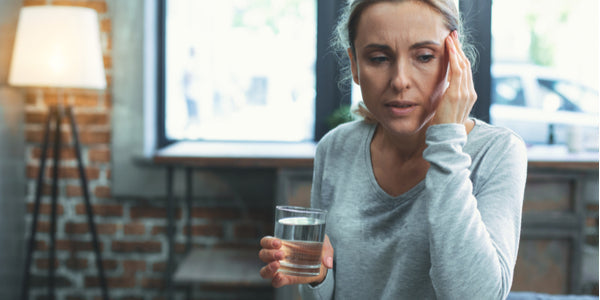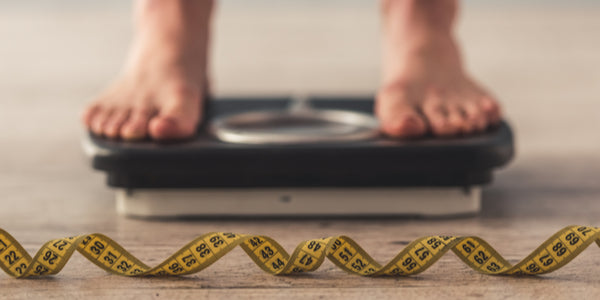
Aging women experience menopause, a natural end of their menstruation cycle. It is also known as "the change" where periods stop, in which women are no longer able to conceive.
Menopause can bring unpleasant symptoms that can affect both physical and emotional health. However, there are many treatment options available, including lifestyle modifications and medications.
What Is Menopause?
Menopause describes the changes women go through before and after menstrual cycles. This ultimately marks the end of the reproductive period, in which the ability to have children is over.
Menopause also has three natural stages, including perimenopause, menopause, and postmenopause.
Perimenopause
Perimenopause is the term given to the years that lead up to menopause, or essentially the transitional period. The ovary starts to decline in function and an egg is no longer released consistently each month.
Without regular egg release, women start experiencing variances in menstrual cycles. Irregular periods may be shorter, longer, heavier, lighter, or more infrequent than others.
Women often experience this menopausal age around 50. It may occur as early as age 40 for others. The average length of perimenopause is 4 years. However, this stage may last only a few months or continue for 10 years for some women.
Menopause
Again, menopause is signaled by 12 months following last menstruation. Childbearing years come to an end and women are no longer able to conceive.
Postmenopause
Postmenopause encompasses the years following menopause. During this time, many of the symptoms ease for most women.
Causes of Menopause
Again, the ceasing of menstruation is caused by the natural decline in women reproductive hormones. As women approach their late 30s, the ovaries start making less estrogen and progesterone. These female-dominant sex hormones regulate menstruation and ovulation.
Though the natural decline of the hormones come with age, some women may experience premature menopause. The premature transition is diagnosed if a woman develops menopause before the age of 40. About 1 in 100 women have menopause before the age of 40 according to the North American Menopause Society (NAMS). The cause is not well-understood and warrants a thorough evaluation.
Menopause can also be the result of medical conditions and treatments. For instance, a hysterectomy is the removal of a female's uterus, which ends menstrual cycles. The fallopian tubes and ovaries may be removed, too. If the ovaries are removed, women are likely to experience menopause symptoms.
Radiation, chemotherapy, and certain medications can also induce menopause. A rarer condition, known as primary ovarian insufficiency, also disrupts normal periods in women aged 40 or younger. A blood test may report signs of menopause and of very few eggs left in the ovaries.
Signs of Perimenopause
Indications of menopause often start occurring during perimenopause. They are the byproduct of reduced function of the ovaries and reproductive hormones, especially estrogen.
Low estrogen levels often lead to classic menopause and perimenopause symptoms. These common symptoms include:
• Hot flashes
• Night sweats
• Mood swings
• Chills
• Vaginal dryness
• Difficulty concentrating
• Thinning hair
• Dry skin
• Low sexual function and drive
Reduced reproductive hormones also increase the risk of bone loss and fractures, weight gain, heart disease, and urinary incontinence. Women with induced menopause may also experience more intense symptoms than those who go through it naturally.
Signs and symptoms are often enough to signal "the change." However, it is important to talk with your doctor if concerned about any of the changes.
Menopause Relief
Because menopause is considered a normal part of aging, so there is no cure. Instead, a number of treatment options exist to lower negative side effects and enhance the quality of life. Some women may turn to hormone medicines, which is also known as hormone therapy.
According to the Food and Drug Administration (FDA), there are different types of hormone medicines used during and after menopause. These include:
• Estrogen-only medicines as pill, patch, cream, ring, spray, gel, and injection options
• Progestin-only medicines in pill form
• Combination estrogen and progestin medicines, with pill and patch options
• Combination estrogen and other medicines in pill form
The FDA further warns there are serious health problems that can happen when taking hormone therapy. Risks include heart attacks, certain forms of cancer, and dementia. One should also not take hormone medicines with a history of blood clots, breast cancer, and other health conditions.
However, adopting a healthy lifestyle can also alleviate symptoms and reduce the risks of health complications. Factors involve diet, exercise, smoke cessation, and stress management, and sleep management. More specific recommendations may include the following:
• Moderate carb intake to target insulin resistance and menopausal weight gain. Insulin resistance is a condition in insulin has a difficult time using glucose for energy. Instead, both insulin and glucose levels remain high. This increases the risk of diabetes and the ability to store fat, especially as belly fat.
• Consuming a low-glycemic diet can assist in weight and reduce hot flashes by balancing blood sugars. High-protein foods, high-fiber complex carbs, and healthy fats tend to rank low on the glycemic index.
• A diet rich in calcium and vitamin D helps lower the risk of bone loss and osteoporosis. Common sources include dairy products, leafy greens, egg yolks, fatty fish, and fortified foods.
• Including 150 minutes of aerobic exercise per week can help menopausal women lose weight and improve overall health. Cardio exercises include jogging, brisk walking, dancing, biking, and any activity that elevates heart rate.
• Incorporate at least two to three strength training sessions in an exercise regimen. Weight-bearing exercises support bone mineral density and muscle growth, which often reduces with advancing age.
• Manage stress to combat mood swings and risks of emotional eating. Try sipping on a glass of hot tea, deep breathing, taking a warm bath, or reading a favorite book. Talking with a close friend or family member can also alleviate stress and improve mood.
• Getting good sleep may be challenging, but it is important for supporting both physical and mental health. Achieve the National Sleep Foundation's recommendation of seven to nine hours by staying consistent with sleep and wake times. Maintain a cool room temperature and ensure mattresses and pillows are comfortable, yet supportive.
• Consider natural remedies for menopausal symptoms. For instance, female ginseng may help with menopause relief and serve as an effective hot flash treatment. Black cohosh, kava, and other remedies may treat hot flashes and menopausal symptoms.
In addition to making healthy lifestyle changes, keep up with regular doctor visits. They can help address any concerns regarding menopause and assist in preventative health measures. Such measures that often come with age include colonoscopies, mammograms, pelvic exams, and other screenings and blood tests.








